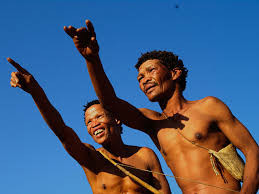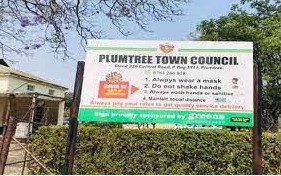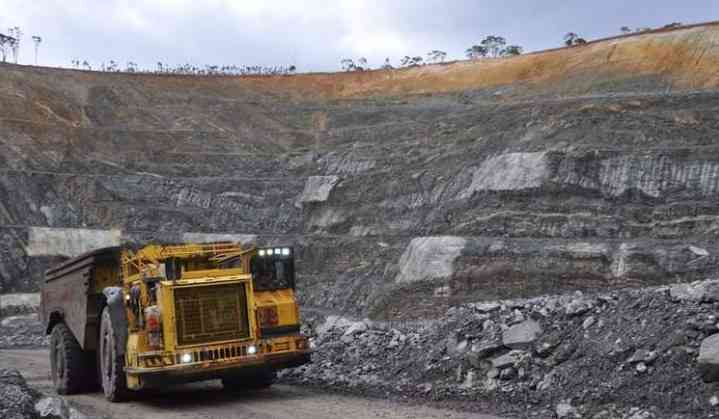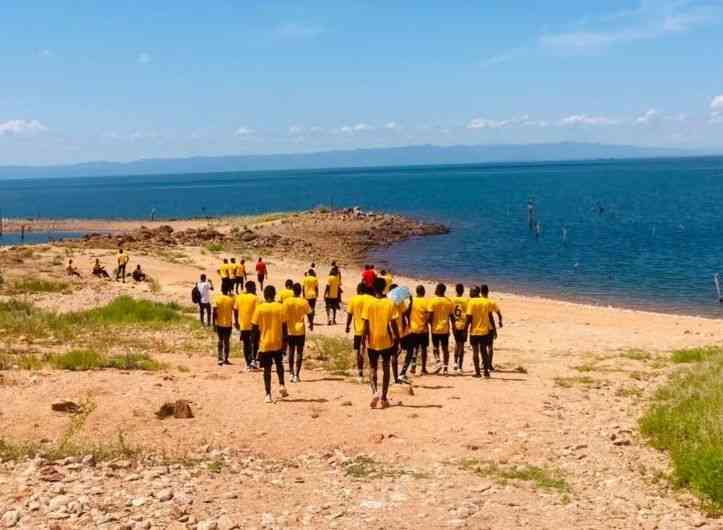
THE San community, located primarily in western Zimbabwe, specifically in the Tsholotsho district of Matabeleland North province, is reeling under the effects of climate change due to failure to adapt the new norm.
The community live in remote areas in Tsholotsho ward 8 and 10 particularly near the Hwange National Park, where they were relocated during the colonial era.
The San were also referred to as Bushmen, but this term has since been abandoned as it is considered derogatory.
However, climate change is no longer a distant threat as it is already shaping the daily lives of the San community.
Droughts, floods, crop failure and loss of water sources remind humanity that the old ways of predicting seasons are no longer reliable.
Gogo MaMoyo (76) said life was very tough for her as she was failing to fend for her grandchildren.
“Everything is very tough. For me to adjust to the new norm by becoming a farmer at my age is unfair,” she said.
“These are new methods, Intwasa and Pfumvudza. These methods need someone who still has energy, not the vulnerable like us. “It is impossible for someone like me at my age to be expected to till the land using the Intwasa method.”
- COP26 a washout? Don’t lose hope – here’s why
- Out & about: Bright sheds light on Vic Falls Carnival
- COP26 a washout? Don’t lose hope – here’s why
- Out & about: Bright sheds light on Vic Falls Carnival
Keep Reading
Sotsha Ndlovu, a father of six, said they did not have draught power.
“We came from the bush. We do not own anything, not even a cat or a dog,” he said.
“So to talk about cattle for draught power becomes so strange. “We only know hunting as a source of food security.”
Ndlovu said they could not wait to be spoon-fed because there is no guarantee as to when the next food handout would be.
“They (government) should look into this matter seriously because we have been deprived of our right to live,” he said.
“The communities surrounding us are better than us because they are used to this kind of life. “The government should give us hunting rights because we survive on meat from animals.”
He said he integration process was supposed to be gradual and with enough resources to cater for their welfare.
Similo Sibanda, another villager, said they were being stigmatised at school by their counterparts, making life at school difficult.
“We are finding it difficult to go to school because some of our parents do not see the value of education due to our culture,” he said.
“Some of the schoolchildren make fun of us.
“Some of us do not have uniforms or even half-complete ones.
“We walk barefoot to school and become a laughing stock.” Sibanda said some of his schoolmates end up dropping out of school and join their parents in the search for food.
Meanwhile, Tsoro-o-tso San Development Trust director Davy Ndlovu told Southern Eye that within these challenges lie an opportunity where communities that work together, guided by strong champions, can adapt and thrive.
He said the San community should not only fight to survive climate change, but should build a future where every household has food, water and hope.
He said sharing knowledge and building bridges among households, local leaders, government agencies and non-governmental organisations would go a long way in solving challenges brought about by climate change.
“Every small action, be it a tree planted, a water source protected, a child taught about conservation, adds up to a stronger, more resilient community,” Ndlovu said.
“Zimbabwe’s resilience has always come from its people, their unity, creativity and courage in the face of hardships, by promoting climate-smart farming, protecting the environment, safeguarding health and encouraging collective action.”
Ndlovu said his organisation was working on a project to assist the San community in mitigating the effects of climate change. He, however, indicated that access to information was a challenge due to language barrier and poor transmission signals that have seen the San community having limited access to communication channels such as television and radio.
“The area also has a poor telephone network reception, with the San community severely impeded as it largely resides in rural Tsholotsho, making it difficult for it to access important climate change information.
“Apart from these infrastructural impediments, the community also has a low literacy rate with the majority having only attained primary education.”
Ndlovu said the project sought to raise awareness about climate change among the San through dissemination of credible information.
He said the San Development Trust had developed a manual aimed at training community champions on climate change, misinformation, disinformation and malinformation among the communities through simplified master classes and interactive physical sessions.
"The project will target 3 000 San community members in Tsholotsho from wards 1, 2, 7, 8 and 10. The project has a deliberate target on youth, women and men,” he said.
The project is in line with attaining the global goal of reducing the impact of disinformation in exacerbating climate change aimed at improved access to accurate information for 3 000 San community members by December 2026.
“One of the key deliverables is the development and codification of a climate change training manual,” Ndlovu said.
“The manual will be used to train 30 climate change champions covering topics such as the fundamentals of climate change, its impacts, mitigation strategies, adaptation measures and existing national and local relevant policies.”
Ward 10 councillor Jonathan Ndlovu said the San community could not farm due to cultural constraints.
“They are hunters by their culture, laws on hunting have been tightened, they now find themselves in a corner, they are finding it difficult to do farming hence they resort to fishing and other means for survival,” Ndlovu said.
He said government had to scale up its assistance to the San community, noting that it got 50kg bags of wheat per household more than a month ago.
“This is not enough, they end up doing fishing in Garia and Mungandume dams, which becomes a threat to the fish population,” he said.
Ward 8 councillor Jazz Sibanda called on the government to look into the plight of the San community.










